Abdul Kalam : The Great Character and Human Being
On July 27, 2015 a noble soul bid adieu to this world and we saw an overwhelming exhibition of grief. Every politician, every activist, every bureaucrat, every writer, poet, philosopher, scientist, journalist, engineer, doctor, banker, student wanted to express their condolences. Avul Pakir Jainulabdeen Abdul Kalam united the nation even after his demise and he was the warrior with a modest character.
Almost every legislator in their obituaries dedicated to Shri Abdul Kalam, mentioned how self-effacing and humble a man, Dr. Kalam was. Media ran special shows that showcased the placid and principled soul and the great character that Abdul Kalam was. They discussed how he enthused people with his inspiring quotes and positive speeches. And they discussed his forehead kissing locks and that winsome smile of his.
But there is one side of Abdul Kalam modest character that hasn’t yet been mulled over much in media or the social media for that matter. Probably because of the so called Communal tag associated with it. Abdul Kalam was a principled warrior and humble character too who recognized and appreciated the power of “Power”. Yes Abdul Kalam was a teacher, a motivator, a charming man and a walking personification of humility. But above everything, he was a scientist trying to strengthen the security of his nation. Abdul Kalam was an ardent follower of Shrimad Bhagwat Geeta. Many people read Geeta, some people understand it and very few incorporate the teachings of it in their life. Abdul Kalam was one of those few who read, understood and implemented the philosophies of Geeta in his life, character and work.
Philosophies of Geeta in Abdul Kalam life, character and work
The stage was set. Kurukshetra geared up for the most colossal of all wars which was going to rewrite the history of Bharat. The Earth was agitated with the sounds of drums and tabors and cymbals, and the clatter of car-wheels. Umbrellas, banners and flags fluttered pompously. War elephants, steeds, cars, and foot-soldiers trooped towards their foes. Not a singl e warrior on Earth wanted to stay away from this great battle. Earth’s mightiest kings were divided into two distinct clans of Kauravas and Pandavas.
e warrior on Earth wanted to stay away from this great battle. Earth’s mightiest kings were divided into two distinct clans of Kauravas and Pandavas.
And in the middle of the War field stood Arjun with his head dropped and shoulders down. He was in a dilemma. He had to make a choice between fighting the war and killing his guru, his beloved Pitamah, friends and cousins or run away from the battle field. And then Krishna tells him that a warrior has just one dharma and one dharma alone – that is to fight. Battle is the testimonial of a warrior. There is nothing more welcome to a warrior than a virtuous war. One’s own duty though without of merit is preferable to the duty of another well performed, because even death in the performance of one’s duty brings happiness. You have the right to work, but never to the fruit of work. You should never engage in action for the sake of reward, nor should you long for inaction. Krishna rekindles the warrior within Arjuna and Arjuna fought the war like no warrior before him ever did.
Abdul Kalam followed the same philosophy in character. He worked relentlessly, but without caring for the fruit of work. He was married to his cause and hence felt for no other attachments. Abdul Kalam knew that a warrior is respected everywhere in the world. And no one considers the warrior a true warrior unless he is equipped for a war at the opportune moment. Abdul Kalam prepared India for that war. India didn’t figure on the priority list of the west until Pokharan happened. It was only after India became a nuclear power in 1998 that the west started taking us seriously. And as a result of that everything associated with India started getting acknowledged. We started featuring in the list of top growing economies and potential allies for super powers. Our might made us look like a prosperous nation. Like Krishna, Abdul Kalam rekindled the warrior in us. The same Indians who took pride in romanticized statements like “India hasn’t attacked any country in the world” adopted a sterner tone on global platforms. Kalam’s bombs and missiles made us a natural candidate for the position of a likely global superpower.
Although India is yet to fight a Mahabharata but the Kauravas around us know that we are ready to retaliate. A scientist called Avul Pakir Jainulabdeen Abdul Kalam made us realize our true potentials and as a nation, we aren’t shackled by chains of shallow idealism and impractical attachments anymore.
Simplicity in the Character of Abdul Kalam
On March 1, 1998, at the award distribution ceremony of the Bharat Ratna at Rashtrapati Bhavan, Kalam was nervous and looked at his blue stripe tie repeatedly.
Kalam was annoyed by such formal occasions where he had to wear the kind of clothes in which he would never find himself comfortable. He never liked wearing suits. Even he always preferred to wear sports shoes instead of leather shoes.
Vajpayee’s first meeting with Kalam was in August 1980 when the then Prime Minister Indira Gandhi invited him and Professor Satish Dhawan to meet prominent parliamentarians after the successful launch of SLV 3.
When Kalam came to know about this invitation, he panicked and said to Dhawan, Sir, I have neither a suit nor shoes. Mere paas le de ke meri cherpu hai (Tamil word for slippers). Then Satish Dhawan smiled and told him, ‘Kalam, you are already wearing the suit of success. So reach there in any case.
Famous journalist Raj Chengappa writes in his book ‘Weapons of Peace’, ‘In that meeting, when Indira Gandhi introduced Kalam to Atal Bihari Vajpayee, he hugged Kalam instead of shaking hands. Seeing this, Indira Gandhi smiled mischievously and took a jibe at Vajpayee and said, ‘Atalji but Kalam is a Muslim’. Then Vajpayee replied, ‘Yes, but he is an Indian first and a great scientist.’
To accommodate his family in Rashtrapati Bhavan, Kalam deducted a check of three and a half lakhs.
There is one incident that shows the great and humble character of Dr Abdul Kalam he was very much in love with his elder brother APJ Muthu Maraikyar. But he never asked him to stay with him in Rashtrapati Bhavan.
His brother’s grandson Ghulam Moinuddin was working in Delhi when Kalam was the President of India. But even then he used to live in a rented room in Munirka. In May 2006, Kalam invited 52 people from his family to Delhi. These people stayed in Rashtrapati Bhavan for eight days.
PM Nair, who was Kalam’s secretary, told me, ‘Kalam paid the rent for his stay at Rashtrapati Bhavan from his own pocket. Even a cup of tea was accounted for. Those people also went to Ajmer Sharif in a bus whose fare was paid by Kalam. After his departure, Kalam deducted a check of three lakh fifty two thousand rupees from his account and sent it to the Rashtrapati Bhavan office.
In December 2005, his elder brother APJ Muthu Maraikyar, his daughter Nazima and his grandson Ghulam went to Mecca to perform Hajj. When India’s ambassador to Saudi Arabia came to know about this, he called the President and offered all help to the family.
Kalam’s reply was, ‘I request you to allow my 90 year old brother to perform Haj like a common pilgrim without any government arrangement.’ Abdul Kalam was a the warrior with a great character.




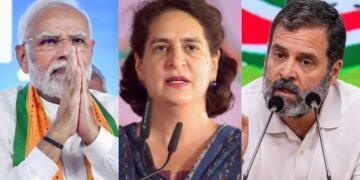
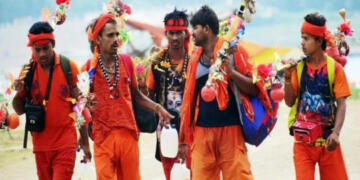




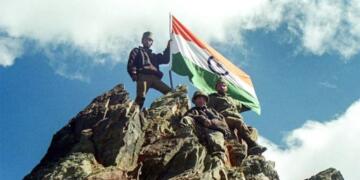







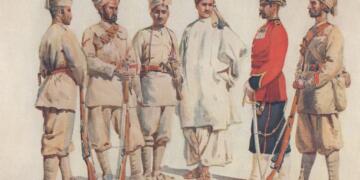
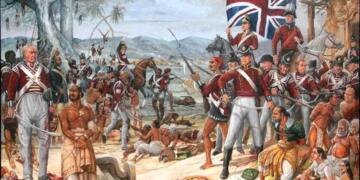
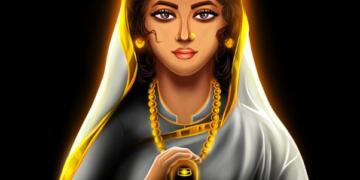
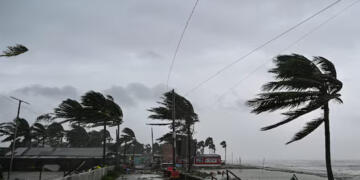




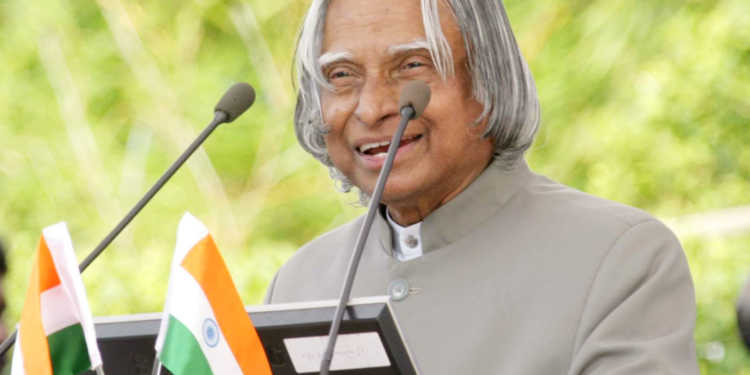
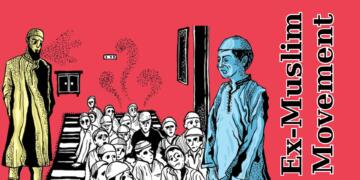
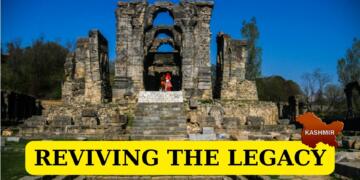

I remember reading a wonderful book of essays on Mahatma Gandhi when I was in 9th std from a book which I got as a prize in Ramakrishna Mission School. One particular essay always remained etched in my memory and one of the few writers whose name I never forgot because of just two paragraphs he wrote about Gandhi. It was Stephen Hobhouse. The book was ‘The first Mahatma Gandhi Essays and Reflections on his life and works Presented to him on his Seventieth Birthday October 2, 1939 Edited By : S. Radhakrishnan, our former president Dr. S. Radhakrishnan
The essay in all editions of different publishers to my memory has remained on Page 80 [ probably because only by that age we realize the value of certain souls] title of the essay was ‘THE SIGNIFICANCE OF GANDHI FOR THE OUTLOOK OF A CHRISTIAN PACIFIST By Stephen Hobhouse, M.A. (Broxbourne, Herts, England)
“However objective our religion or philosophy may appear to be, each of us human beings who is able to reflect and to aspire has had to construct a world of his own out of materials set before him by the mysterious, unknown environment wherein he finds himself. Within this universe of our consciousness there are certain objects— forces, qualities, ideals, or persons we call them— which stir with a strange and moving attraction the central fibres of our nature, our heart and our reason; and there comes to us in our better moments a constant longing to know them, to love them, to identify ourselves with them more and more completely, ever seeking to liberate ourselves from the trivial and inessential, the unlovely and the impure. Other minds may find much of this central attraction in the creations of human art or even in the subtle correspondences of scientific process. I am one of the many who find it chiefly in the inexpressible wonder and beauty of personality, as imagined in its perfection of life through the best and loveliest men and women who cross our path whether in the flesh or in books, as well as in an indefinable sense of the same personal wonder and beauty breathed upon us from visible nature, in sky and earth and living things, when her moods and ours possess the inner harmony that brings peace. And from these two centres of my highest experience I am inescapably drawn to a faith in that which we call God, to an experiment in discovering and testing an infinite super-personal yet supremely personal and supremely beneficent Being, who is at once the source and the goal of all the separate centres of life and beauty which within and around me strive for liberation and expression. Unhappily, too, I am equally conscious of dark, destructive elements of ugliness and discord, which with an evil activity of their own mar the growth of harmonious life. These forces seem to some extent to be present in external nature, but, inasmuch as the courageous human soul has a marvellous capacity for overcoming or neutralizing the hostility of nature, they are far more dangerous enemies as present within the hearts of men, and within my own heart in particular. Unaided I too often lose faith and am all but helpless before the demonic power of these evil tendencies; and I must turn for aid and liberation to a closer fellowship of spirit with some other personality, human or divine. Providence has ordained that I have been born and bred in a community where past and present have united in confronting me with the historic figure of Jesus Christ, as supremely incarnating the infinite Personality which seems to live at the heart of all that is good and beautiful. Thought and prayer and the influences of a still vigorous tradition, sanctified by the wisdom of antiquity and now, as perhaps never before, becoming purified of alien accretions, have convinced me that this historic person holds a position at the heart of the Godhead and the universe, as no other human figure, no other avatar or incarnation of the Divine can do. The same Spirit lives with a lesser but still splendid pre-eminence in other human personalities, in many doubtless who have left behind them no recorded memory, in some souls whose memory is preserved as the bright and shining lights of our race’s history. A fewdark patches indeed there may be on their radiance, but these dim its beneficence but little. I think of them all as messengers and prophets of the eternal Christ, even though some among them would not or could not acknowledge Him as Lord and God. Of these historic light-bearers, one of the greatest of all time, so it seems to me, is Mohandas Karamchand Gandhi, the prophet of ahims-satyagraha. Certainly he is the greatest that has appeared in our own day. The decay of ancient faiths and moralities, the tyranny of the machine, the evil use of applied science made by the misguided industrialists and militarists whose control we support or at least endure, have, in spite of recent revelation of many new and lovely aspects of truth, produced I n world history an unexampled crisis. It is even conceivable that civilization or, since that word is an ambiguous one, orderly, kindly, enlightened human society, as the more fortunate know it to-day, may perish more completely than ever before in the universal confusion and destruction of strife engendered by the lawless selfseeking of human desires and passions. I have sent myself in the essay to try to explain how it is that Gandhi’s great and closely related ideals of ahimsa and satyagraha appear to me to present the only means by which salvation and redemption, healing and true life, can come to the sorely distracted and diseased environment in which we find ourselves.
Now this book is available free on nethttp://www.mkgandhi.org/ebks/mgessaysandreflections.pdf